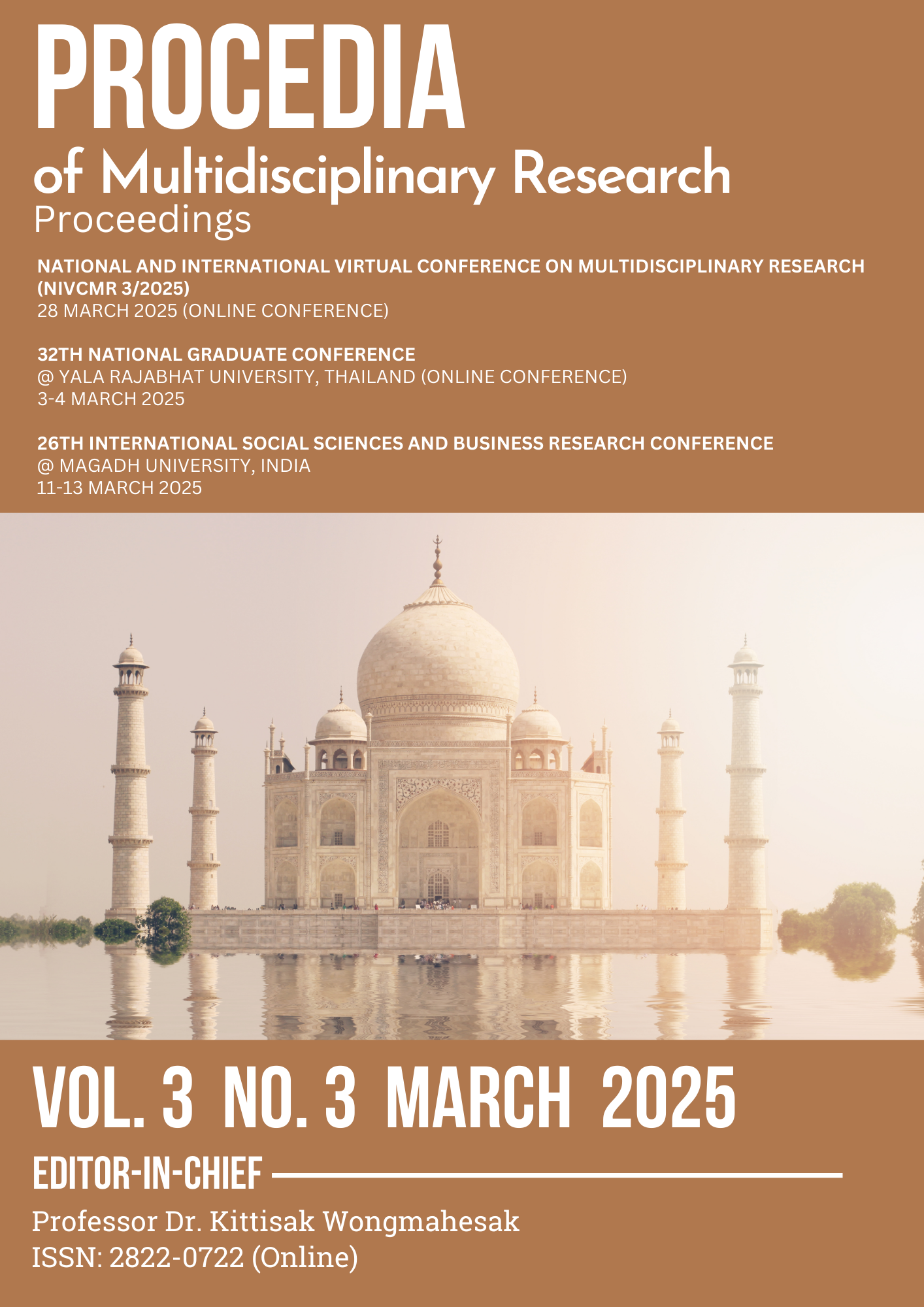ACCEPTANCE AND ANXIETY IN TECHNOLOGY USE AFFECT THE INTENTION TO USE HEALTH SERVICES: 'DISEASE DIAGNOSIS THROUGH ARTIFICIAL INTELLIGENCE' AMONG MILLENNIAL USERS IN BANGKOK
Abstract
This study aims to examine the influence of technology acceptance and technology-related anxiety on the intention to use the health service "Disease Diagnosis Through Artificial Intelligence" among millennial users in Bangkok. The research sample includes millennials residing in Bangkok, selected through purposive sampling, with a total of 400 participants. A self-administered questionnaire was used as the research instrument. The statistical methods used for data analysis include descriptive statistics and inferential statistics via multiple regression analysis. The findings reveal that: 1) The overall level of technology acceptance among the participants was high. 2) The anxiety related to using AI-based disease diagnosis was generally low. 3) The intention to use the "Disease Diagnosis through Artificial Intelligence" service was high. 4) The hypothesis testing showed that both technology acceptance and anxiety significantly affect the intention to use AI-based disease diagnosis at a 0.05 significance level. Specifically, perceived usefulness, ease of use, external factors, and attitude towards using AI were significant predictors of usage intention, while anxiety had a negative effect on some aspects of the intention to use the service.
Downloads
Published
Issue
Section
License

This work is licensed under a Creative Commons Attribution-NonCommercial-NoDerivatives 4.0 International License.







.png)


